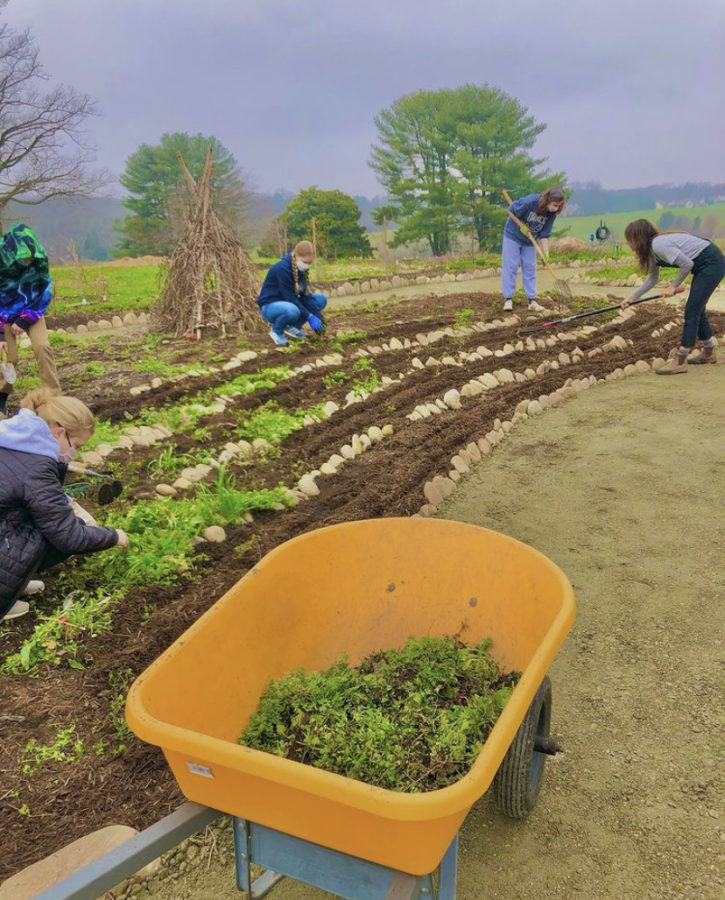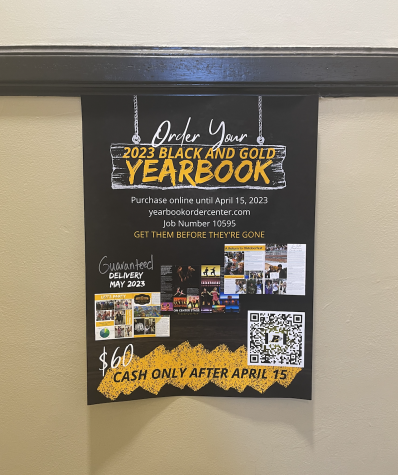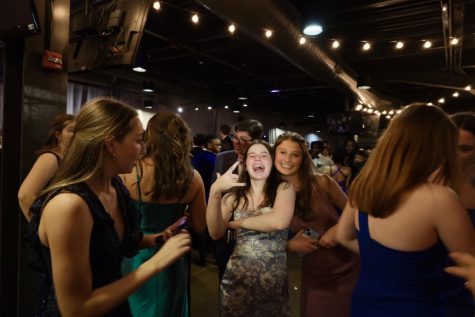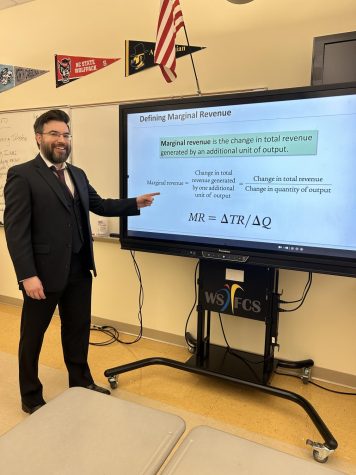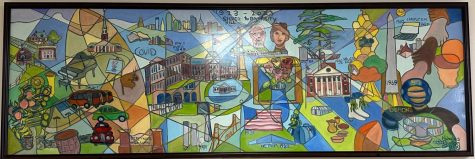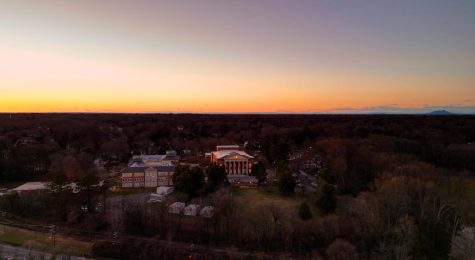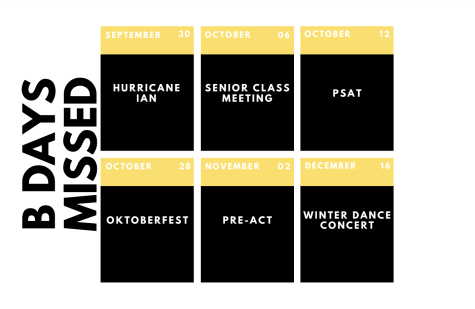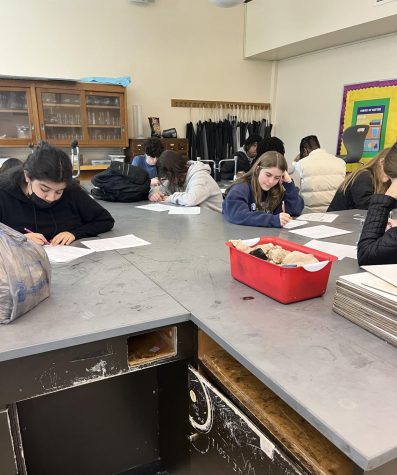Clubs v. Pandemic
March 22, 2021
Clubs are a great way for high school students to spend their time outside of classes socializing with people from their school while participating in activities that interest them. Here at R. J. Reynolds High School, there are a wide variety of clubs ranging from Latin Club to Senior Girls Service Club, and even Knitting and Crochet Club. Given the trying circumstances of this school year, each club has taken to tackling the pandemic in its own way.
At the start of this school year, the former RJR Eco-Club was informed that they would not be allowed access to the school garden. This changed the game for the club because the garden played a large part in the meetings last year, as members would meet weekly to care for the plants in the greenhouse. Adapting to the sudden change, RJR Eco-Club merged with the county-wide Young Environmentalists.
“Originally it [Young Environmentalists] was a meeting place for all the schools Eco Clubs so they could confer,” RJR junior Ella Klein, president of Young Ecos, said. “Now it’s just an activist club that anyone from any school can join but it also serves at the Eco-Club for Reynolds right now as a sort of combo.”
It was a smooth merge because practically all of the RJR Eco-Club members were already a part of Young Environmentalists.
“All the members in Eco-Club were also in Young Ecos, but Young Ecos included people from other schools…this year we just stopped having the separate Eco-Club meetings because school was closed and there wasn’t much point without a garden,” Klein said.
She also noted that the overwhelming majority of members are high schoolers in Forsyth County with the addition of a few members from surrounding counties such as Guilford and Davie.
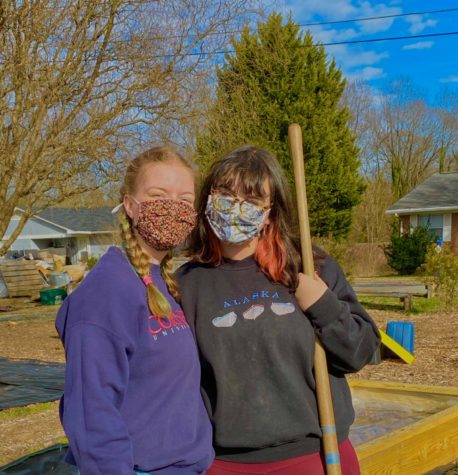
Photo provided by Ella Klein
Klein, along with her Vice President Neriah Olivier, host weekly zoom meetings where the environmentalists meet to discuss or learn about an environmental cause. In addition, twice a week, there are in-person opportunities at community gardens.
“[It’s] very COVID safe… outdoors with masks on,” Klein said. “On Wednesdays, it’s gardening at Crossnore Children’s Home and on Saturday mornings it’s at Gateway Nature preserve, and there are about 8 spots available where members can sign up to volunteer.”
As far as participation goes, Klein is very happy with the turnout this year. While they are only around five returning members from last year, due to the fact that many were seniors, there has been an influx of new people joining the club.
“Zoom meetings I think average at about 16 people per meeting which is pretty good… but we have a lot of new people…I am really happy,” Klein explained.
By far, the hardest part about leading a virtual environmental club has been reaching as many new people as possible while also keeping current members interested and invested.
“Last year we would have fun meetings in a cool space with snacks and music where you could talk with your friends and meet people from new schools, and zoom is just not as fun,” Klein noted.
Nevertheless, the Young-Ecos club is making the best out of the situation and continuing to learn, grow and do good for the community.
Another club at RJR that has been trying its best to continue helping the community throughout these trying times is Girls Council, one of the service clubs.
Last year members would gather together in the library once a week after school. Senior presidents, Elizabeth Marshall and Mercer Sullivan would talk about the many community service opportunities available and then open a sign-up for members to volunteer. However, in that COVID free-world, almost all of the community service was held in-person.
This year the service club has had to make some adjustments.
“Meetings are once every week or every two weeks at best, and they’re all on Zoom,” President Elizabeth Marshall said.
Due to the fact that not many organizations have in-person volunteering available, the main focus of the club this year has been on donations. From food drives to pillow drives, the girls have collected goods for those in need in the community.
However, unlike Young Ecos, the GC officers have seen a drop in participation.
“We have a lot lower attendance for our meetings now than we did in previous years,” Marshall said. “I would say that drive-wise, it’s kind of difficult to monitor how many people are bringing how many goods but we are attempting to get everyone to participate as much as possible and we do have an hour requirement. It’s important that they’re [members are] actually participating. This isn’t a social club; it’s a service club.” The presidents understand, however, that part of the reason why it has been so hard to keep members donating goods is that it is somewhat of a financial issue.
“I mean we could do a drive for Second Harvest every week but you know, a lot of people can’t shell out that kind of money… 15 bucks a week ends up adding up and being kind of a lot,” Marshall explained.
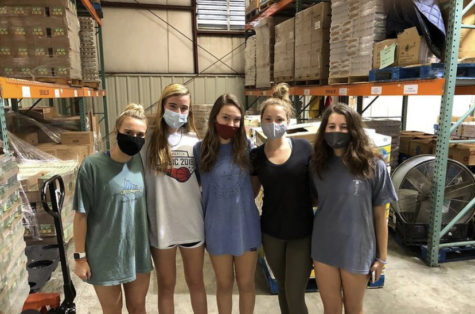
Photo provided by Mercer Sullivan
While the club is focused on community service, another fun aspect of GC and the other service clubs in years past that they are missing this year include pasta dinners and kidnapping initiation.
“Personally, I really miss pasta dinners and initiation,” Marshall noted.
The pandemic hit in March of 2020, which was right in the middle of the two-part service club initiation process. This meant that the new members last year really only had to undergo the first half of their initiation before everything went on lockdown. Now, a year later the incoming members will unfortunately not be allowed to have an in-person initiation at all.
“Last year, Mercer and I didn’t get to do any of that; initiation, or the progressive dinner which is after the kidnapping, basically, kidnapping part two… we really do miss planning initiation and getting everyone kidnapped and stuff that’s just such a bummer. It’s looking like initiation is going to be slim to none this year.” Marshall said.
Although the service club officers are working on some sort of application process for this year to admit new members in hopes that by next school year things will be back to normal.
Foreign language clubs, on the other hand, such as the Spanish Club have not been quite so affected by the lack of in-person events. They have turned to Zoom for all of their activities. Meeting just as many times as last year, once a month, the club members have kept their spirits up.
“Well we can’t do many of the same activities we did last year (board games, distribute food, arts and crafts) but online has also given us opportunities to do other kinds of activities. Kahoots and google slide activities have become a staple of our meetings,” Co-President of Spanish club, Finn Giegengack, a senior at RJR said.
In addition, participation has remained relatively high.
“Participation has been pretty comparable to last years actually since we started strong with around 50 students, but as the year has gone along, we’ve got around 25 plus or minus strong contributors,” Giegengack said.
The focus of the meetings has also stayed the same in comparison to last year.
“Each meeting we learned a bit about something that was happening in the Hispanic world around that time, mostly we would pick a holiday, and then we would have activities that focused on that event,” Giengengack explained.
What officers and members of the Spanish Club miss the most are the food and sweets that they would share at each meeting last year as well as the in-person socialization. Other than that, they are going with the flow and carrying on very effectively.
All of the different clubs have their own unique approaches to managing this year. Some are completely virtual, while others are doing a hybrid half and half meeting schedule, but one thing that they all have in common is adaptability and perseverance, and that is something we can all recognize and appreciate them for.



